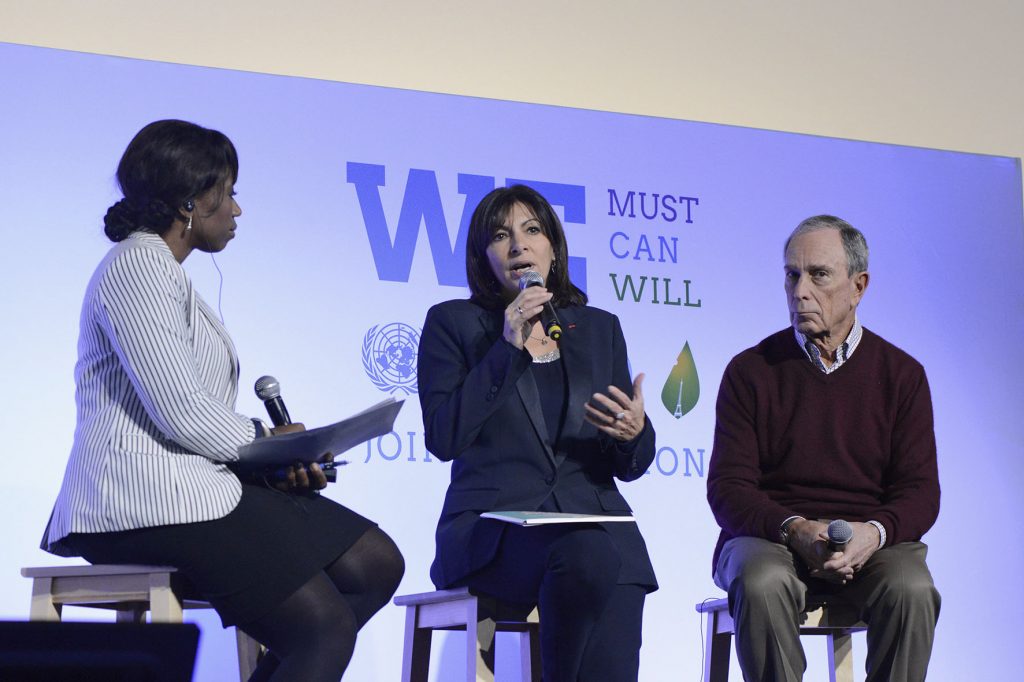By Kevin Mooney
Billionaire businessman Mike Bloomberg, the former New York mayor and presidential candidate, is poised to benefit financially from proposed rules requiring climate disclosures for businesses that he had a hand in crafting, policy analysts say.
President Joe Biden’s Securities and Exchange Commission proposes that publicly traded companies disclose to investors what the commission describes as “climate-related risks” that could affect operations. If adopted, the SEC rules also would require companies to disclose greenhouse gas emissions.
The SEC announced the proposed rules in March and a comment period ended Nov. 1, but the agency isn’t expected to finalize the new requirements until next year.
Bloomberg, who ran for president in 2020 as a Democrat, is currently the United Nations’ special envoy on climate ambition and solutions. He is also chairman of the Task Force for Climate-Related Financial Disclosures, or TCFD, a panel that figures prominently in the SEC rules.
In fact, a Daily Signal analysis of the rules shows that it includes 243 references in which the Securities and Exchange Commission points to the Bloomberg-run climate task force as the source of inspiration.
On page 34 of the rules, for instance, the SEC says:
“Our proposed climate-related disclosure framework is modeled in part on the TCFD’s recommendations. A goal of the proposed rules is to elicit climate-related disclosures that are consistent, comparable, and reliable while also attempting to limit the compliance burden associated with these disclosures.”
Bloomberg is the founder of Bloomberg LP, a financial, software, data, and media company headquartered in New York City. He also is the founder of Bloomberg Philanthropies.
Potential New Revenue
Bloomberg LP appears well positioned to create new revenue streams for itself if subscriptions to a product called Bloomberg Terminal become the preferred source for SEC compliance.
An Investopedia analysis of Bloomberg LP estimates that it draws about $10 billion a year in revenue, primarily through a Professional Services division that includes Bloomberg Terminal, a computer system that enables investors to access global data. Bloomberg charges an annual subscription fee of about $28,000.
In his capacity as U.N. climate envoy, Bloomberg is committed to achieving “net-zero” greenhouse gas emissions in step with the goals of the Paris Agreement, the international climate treaty first adopted during a 2015 U.N. conference in Paris.
The Financial Stability Board, an initiative of the G-20 nations, established the climate task force during that U.N. conference and named Bloomberg as chairman. In June 2017, the task force issued its final recommendations, which serve as the basis for U.N. “pilot projects” involving banks, investors, and insurers.
Since then, Bloomberg has remained an active player in U.N. climate conferences and in Democratic Party politics in America.
Bloomberg served as a Republican—or with the endorsement of the Republican Party—during his time as New York’s mayor from 2002 through 2013. He had been a Democrat before that, however, and ran for president as a Democrat in 2020. Bloomberg was the single biggest donor to Democrats in that election cycle, campaign finance records show.
In September, the businessman turned political activist announced “a 45-day-long series of initiatives and commitments” designed to deliver “urgent climate action” in anticipation of the most recent U.N. climate conference, held from Nov. 6 to 18 in Sharm El-Sheikh, Egypt.
“Bloomberg created the Task Force for Climate [-Related] Financial Disclosure for the purpose of bringing the United States into these regulatory arrangements where companies are required to disclose the relationship between their business activities, their emissions, and what kind of climate risks they might encounter,” Tammy Nemeth, an energy policy analyst based in the United Kingdom, told The Daily Signal in a Webex internet call.
Nemeth added:
“This effort is really being driven in Europe where they are already embracing the Bloomberg task force. It’s part of a broader progressive movement. In the U.S., there’s some resistance to these kinds of efforts.”
…
“Unfortunately, there are already a fair number of U.S. companies that are using [the task force’s] standards and they are trying to coordinate their climate disclosure practices with the SEC.”
Nemeth is host of “The Nemeth Report,” a podcast focusing on energy and geopolitical issues, and the author of a recent report on global financial disclosure standards affecting hydrocarbon companies in Canada.
…
Read the rest at The Daily Signal.
Kevin Mooney is an investigative reporter for The Daily Signal.
Originally published by The Daily Signal. Republished with permission
To read more about conflicts of interest in climate advocacy, click here.
To read more about net-zero, click here.
